The Indigenous voice to parliament vote revealed Australia is two distinct nations
The No vote victory transcends the respective campaigns. This was a repudiation of elite morality and assumed moral superiority.
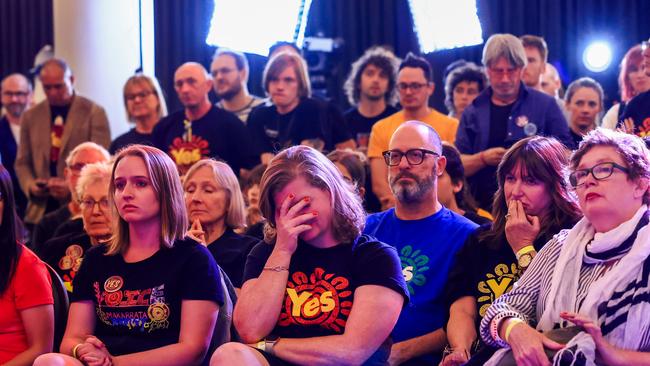
While the voice was voted down 61-39 per cent, the Yes-No split suggests a divide that has been evolving for many years and is described in varying ways – insiders versus outsiders, progressives versus conservatives and established elites versus the forgotten people.
This referendum wasn’t about mere mechanics, such as parliamentary terms or retiring ages for judges. It was constitutional change saturated in notions of justice, recognition, dispossession and listening. The moral dimensions were everywhere.
The No case said the voice would divide Australia in terms of race, ancestry and equality of citizenship. This was about the values and principles that underpin our democracy. And that’s what divided the country. To pretend there’s no wider message is folly.
Out of 151 federal electorates, only 32 delivered a Yes vote. But they were defined by high-income earners, the professional class, people of influence and power and young people. This is a world of progressive social conscience and conviction. The Yes seats were in the inner cities, the affluent suburbs, Sydney’s eastern suburbs, the entire north shore, Melbourne’s pro-Green inner city, its well-off electorates, Kooyong and Goldstein, and, most conspicuously, in the high-income, governing class in the ACT.
The No vote came from the outer suburbs, the regions and rural areas. It was powerful in the outlying states, Queensland, South Australia and Western Australia. The trend from the 1999 republic referendum was repeated but intensified – the farther you went from the capital city GPO the more the No vote increased. Coalition seats were loyal and disciplined and voted No, the only exception being Bradfield in NSW.
The established progressive seats stayed true to their beliefs. All the Greens seats voted Yes; all the teal seats voted Yes (though Mackellar is on a knife edge). While Peter Dutton had an impressive victory overall, the Yes vote in the teal seats suggests their values remain distant from the Opposition Leader.
But Anthony Albanese, who led the Yes campaign, was repudiated across most of the Labor-held electorates in the suburbs and outer-metropolitan areas with 58 out of Labor’s 78 seats voting No. The chasm between the regions and the inner cities suggests Australia is two different nations.
The highest No vote at 85 per cent was in Nationals leader David Littleproud’s rural Queensland seat while the highest Yes vote at 77 per cent was in the Melbourne seat of Greens leader Adam Bandt.
The results mirrored the campaign. No other political contest since World War II has seen such an alignment of established power, influence and institutions – the big companies, financial power, the director class, the philanthropists, trade unions, celebrities, cultural institutions, sporting bodies, the public broadcasters, lawyers and professional organisations.
The No vote victory transcends the respective campaigns. This was a repudiation of elite morality and assumed moral superiority. The core of the referendum was for a new group rights political institution based on ancestry to be given constitutional sanction with obvious consequences in terms of equality and race.
Elites saw this as a major advance for Australia. Most of the population distrusted or rejected outright this progressive sophistry. There are unmistakable shades in this referendum of the contest between insiders and outsiders (or elites against populists) that has damaged the politics of Britain and the US in recent years.
Issuing a warning, Australian National University election surveys co-author Ian McAllister tells Inquirer while early analysis has to be speculative: “I think there’s a real values gap here. It shows, I think, a strong populist sentiment in the electorate. People didn’t like being talked down to and you had this unity of the political and university-educated elites.
“I think populist sentiment in Australia is pretty similar to what you find in Britain and the US, if you look at the Brexit vote or people voting for Trump. It’s a less educated vote, people from a lower socio-economic status, people feeling much more economically pressured.
“One of the things I’ve noticed in our surveys is the populist sentiment is there but it hasn’t really surfaced in Australia at elections because of the electoral system and our strong party system.
“But referendums are different. There’s less party influence and people face a clear yes-no choice.
“When we calibrate the sense of populism here it seems similar with the United States and Britain.”
In his classic study of this conflict in Britain, journalist David Goodhart, author of The Road to Somewhere, identifies the world view of the cosmopolitan elites who prioritise autonomy, mobility and innovation, and put a much lower value on “tradition and national social contracts (faith, flag and family)”. They put less emphasis on national citizenship, unity and responsibility, champion human rights and, critically, they have the influence to get things done. When they push, “things happen”.
Goodhart makes a plea to what he calls the Anywheres (the cosmopolitan elites) to be less headstrong. He says their influence has been too great. The consequence has been the damaging populist backlash in Britain and the US. “If we are to be tough on populism we must be tough on the causes of populism,” Goodhart says.
There is no sign of this in Australia. Elites are driving the agenda, typically outside the party system. This is only likely to continue, fuelled by a changing morality, progressive beliefs and new values in stakeholder capitalism.
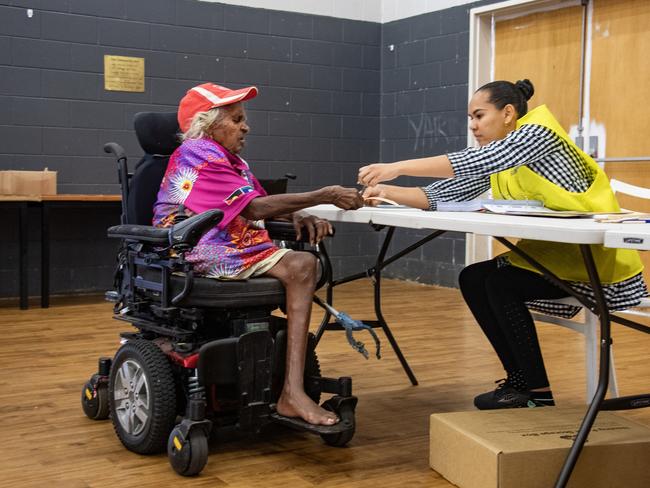
The voice referendum is but one unique instance in a wider sweep of history – it was a truly remarkable fusion involving Indigenous leaders, a Labor government and a coalition of elites.
A likely legacy is the deepening of the nation’s conflict over values – progressives are expected to double down in their determination to pursue climate action, Indigenous political rights, group rights, racial, gender and diversity causes, while outer suburban and regional voters grow more wary of progressive values, experiments and tampering with the once accepted but now eroding universal norms that defined the Australian nation.
It was the great moral philosopher of our age, Rabbi Jonathan Sacks, who warned: “When there is no shared morality, there is no society.” Debates about the breakdown of trust are mainly useless because they ignore the issue: when society cannot agree on core values, there is no trust.
This is the predicament of Western democracy. McAllister’s warning that populist sentiment in Australia is likely to be greater than appreciated – with the voice referendum suggesting this – should be heeded given the economic squeeze is going to continue, real wages remain weak, living standards are under pressure, inequality is growing while progressive elites are likely to continue their drive to change our social and cultural norms. This is a recipe for serious trouble.
The progressive cultural cradle is higher education and its method is cultural transformation. In its strongest form the progressive ideology says societies such as Australia have failed to come to terms with Indigenous dispossession, racism, sexism, patriarchy and monoculturalism in its beating heart, and this must be addressed in the schools and universities.
In its milder yet influential variation financial and corporate elites push investment decisions based on environment, social and governance (ESG) criteria, enshrining the view that companies must be responsible to a wide group of stakeholders, not just customers, suppliers and investors.
The idea is that they should use their power to become agents of enlightened change – part of the unhealthy politicisation of nearly every aspect of society. These campaigns are conspicuous for their dubious lack of accountability. Whether corporates reassess after the voice vote remains to be seen.
We are engulfed in an extreme adversary culture. This comes at the precise time we need to be supporting each other given growing economic tribulation. Power has shifted decisively to a professional, managerial, educated class that intends to use that power, a point readily understood by the voiceless majority.
Simon Welsh from the Redbridge polling team tells Inquirer: “The voice result points to a cleavage around socio-economic status. The Yes vote is strongest in wealthier areas, with higher levels of tertiary education, age is important, it’s an inner-suburban, progressive-type voter, globalist in their views, highly engaged with socially progressive issues.
“I think the difference was more an insiders-outsiders distinction as opposed to a fundamental distinction on fairness and equity. We see in our research people feel conscious of a system that is stacked against them.
“One of the mistakes of the Yes campaign was allowing itself to be seen as the campaign of big corporates. They’re the real enemies when you’re talking to people in the outer suburbs. Qantas puts money into the campaign so it begins to look like a campaign of wealthy insiders.”
American writer and journalist David Brooks, writing in The Atlantic magazine in 2021, captured the separate life and patronising outlook of US elites. While self-identifying with the class he criticised, Brooks said he had been previously naive in under-estimating how it became a “self-contained caste”.
He said: “The creative class, or whatever you want to call them, have coalesced into an insular, intermarrying Brahmin elite that dominates culture, media, education and tech. Worse, those of us in this class have had a hard time admitting our power, much less using it responsibly. It determines what gets recognised and esteemed and what gets disdained and dismissed.”
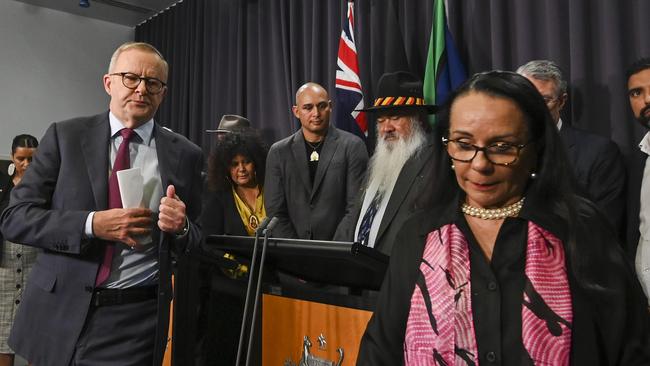
Brooks said the psychic crisis was provoked by the whiffs from the elites of “smarter than” and “more enlightened than” and “more tolerant than”. Australia has just seen six months of such a display with Yes supporters patronising their opponents as dumb, racist and prejudiced.
The voice referendum saw a cavalier lack of serious assessments by elite leaders and institutions putting money, prestige and support into the Yes case. Incredibly, many companies signed up to support the referendum before the changes to the Constitution were even finalised. Many seemed unable to grasp the depth of the issue and how the referendum proposal would change the principles of Australian democracy. Because elites have the power, there is a special responsibility vested in them to ensure the nation’s future. The upshot from the referendum is that responsibility has been compromised and they cannot be trusted.
Albanese’s leadership has been damaged because he put a flawed referendum and misjudged the sentiment of Middle Australia.
The trap for the Prime Minister is becoming a prisoner of the minority constituency that voted Yes. He needs to break away, rebuild and look after the legions that voted No. That means convincing the working-class and suburban middle-class No voters to return to him on the issues of the economy, services, jobs and living standards.
‘Binding up the wounds from the defeat of the voice will be a long, difficult project. It will be even more difficult if the legacy is a more divided nation.’
The iron law of referendums is that they cannot be translated into election outcomes. That’s good for Albanese and a warning for Dutton. The worst mistake Dutton could make is to believe this referendum constitutes an Australian re-conversion to conservatism, that it’s time to resurrect conservative campaigns and ditch net zero at 2050. That would be abject folly.
There is, however, a position for Dutton – it is the revived relevance of the Menzies “forgotten people” and appeal to the middle class. The No vote shows many people are feeling marginalised, overlooked, powerless, and think their values are under assault – sentiments certain to be accentuated by economic and power pricing pressures. That is an opening for Dutton.
Asked about the Liberals, Welsh says: “The real danger for them would be the lurch to the right. There’s a generation coming through now whose awareness of the Liberal Party has been marriage equality, climate policy and now the voice referendum. You’re going to have a number of voters aged into their 30s who have never voted Liberal and don’t see the Liberals as their party.
“We’ve got polling for the Liberals among the under-30s at around the 12 or 14 per cent mark. I don’t see that getting any better off the back of this referendum.”
Welsh says Albanese faces a dilemma. He says a “key takeout” in those seats where there are Labor-Greens contests is that “if the government walked away from substantive real action” on Indigenous issues they would risk alienating progressive voters. Yet, at the same time, Albanese needs to pivot to the economy, where people in surveys were asking of Labor “where are they?”
The divisions in Australian society reflect the crisis of Western liberalism, the central idea that has held democracies together as functioning entities.
Liberalism as a philosophy stood for equality before the law and in politics regardless of race or creed, and equal access to economic opportunity and options for individual self-realisation. That brand of liberalism is now under assault from right and left.
The mantra from the populist conservatives on the right is that liberalism is a prescription for weakness, cultural and religious decline, faltering economic performance, the erosion of national willpower and the alienation of much of the hardworking backbone of the country.
On the left the epic journey has been from liberalism to progressivism. The essence of progressivism is the demand for a new moral order and that people change their values and the way they live to deliver the utopia of clean energy, racial justice, atonement for colonial history, honouring diversity and securing sexual and gender justice.
Binding up the wounds from the defeat of the voice will be a long, difficult project. It will be even more difficult if the legacy is a more divided nation. That’s the risk. The people who have the power need to reflect upon how they lead and the consequences of their leadership.


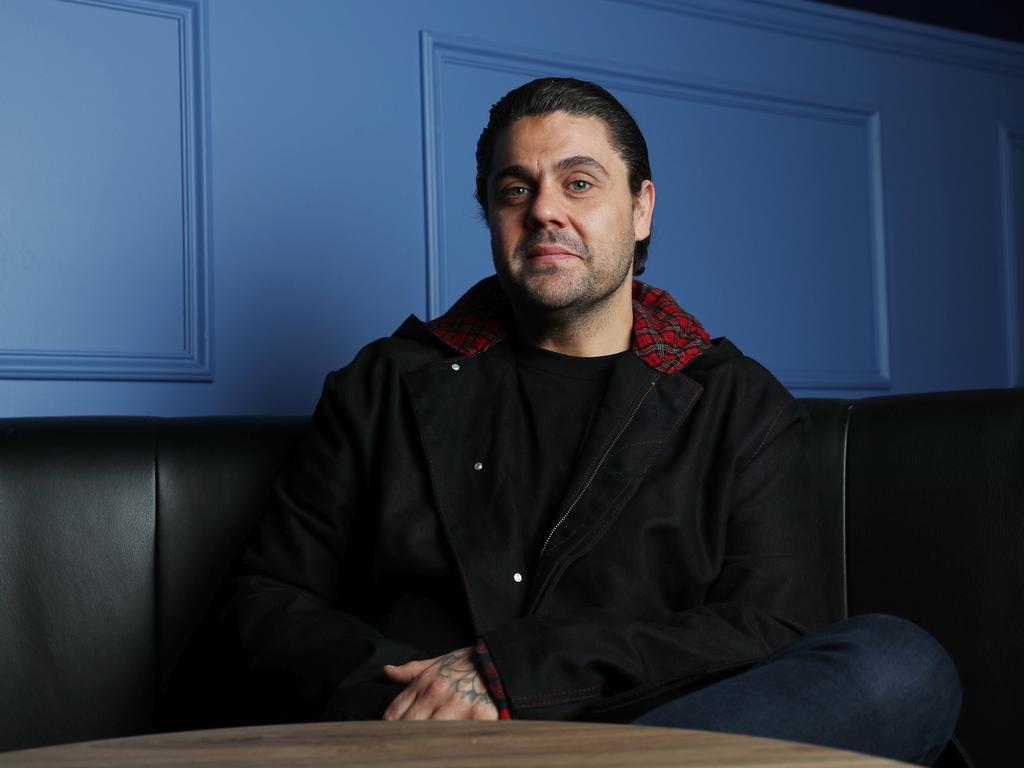

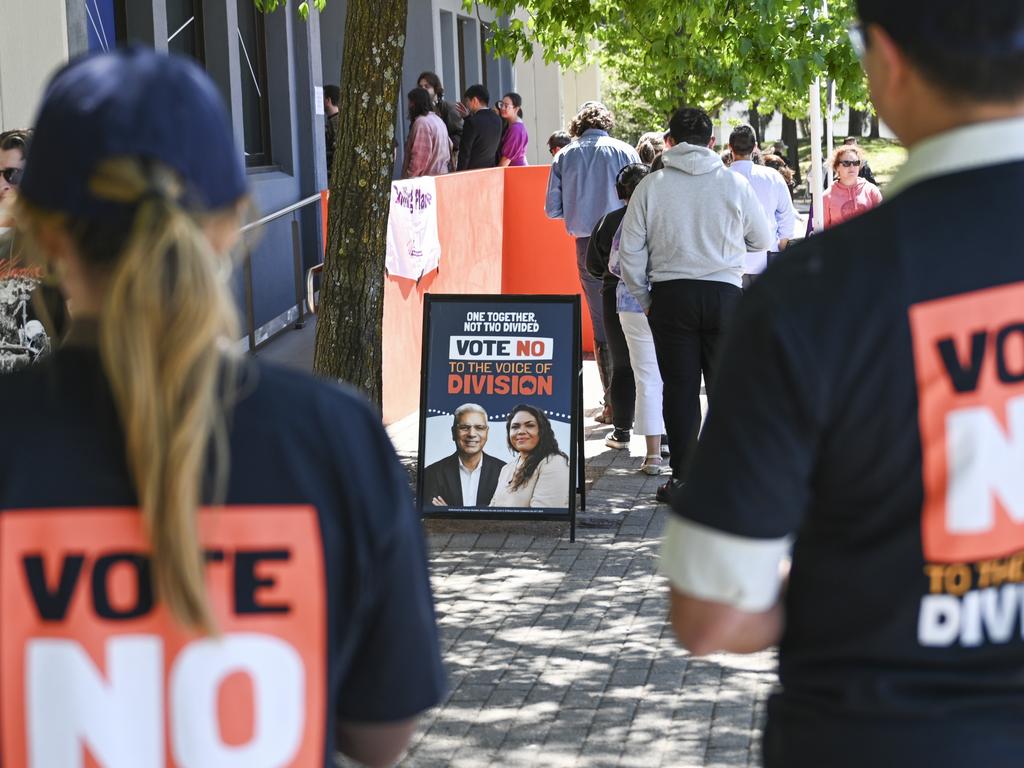



Australia is a divided nation – divided by age, education, location and, probably more significantly, morality and what constitutes virtue. The referendum on the voice was not just about Indigenous constitutional representation but about the principles that define our society.